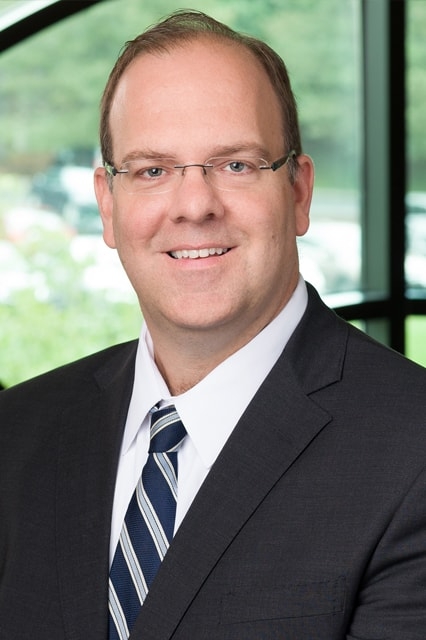CSG Law Alert: Lawyers May Purchase a Google AdwordSM or Keyword That is a Competitor Lawyer's Name, But There are Ethical Limits to What Lawyers Can Do With Search Engine Services
On June 25, 2019, the New Jersey Supreme Court’s Advisory Committee on Professional Ethics issued Opinion Number 735, deciding that Lawyer A can ethically purchase a Google AdwordSM or keyword that is competitor Lawyer B’s name (e.g., Pat Smith Law Firm purchases a keyword for Alex Doe Law Firm, so that when users search “Alex Doe Law Firm,” Pat Smith Law Firm will also appear in the search results, generally as an “ad.” Lawyer A, however, crosses the line when (s)he pays a search engine to insert a hyperlink on Lawyer B’s name that diverts the user to Lawyer A’s firm when the user clicks on it.
Like any other businesses in the service industry, law firms compete. Outstanding, cost-effective lawyering, good results and repeat business are often the best drivers. But lawyers also must market, often through paid advertising. Today, that usually means some form of an on-line presence. Unlike other businesses, law firms are subject in many aspects to the direct supervision and enforcement by the New Jersey Supreme Court and its arms (including the Office of Attorney Ethics, the Disciplinary Review Board, District Ethics Committees and the Committee on Attorney Advertising). The Court’s goal is to maintain the integrity of the legal profession and the public’s confidence through – among many other things – ensuring that attorney advertisements are not misleading to potential clients.
With this backdrop come our fictional law firms, Alex Doe Law Firm and Pat Smith Law Firm, with a fictional (but plausible) story. After having a very successful practice in New York, Alex Doe just launched a practice in Southern New Jersey specializing in maritime law. There are not a ton of maritime lawyers in Southern New Jersey, but Pat Smith happens to be one of them. Competition between the two firms is expected to be fierce and Alex Doe intends to launch an aggressive, but ethical, on-line marketing campaign. Alex reached out to the New Jersey Supreme Court’s Advisory Committee on Professional Ethics (which provides guidance on questions concerning the Rules of Professional Conduct). Her inquiries led to Opinion Number 735.
Alex’s first question was “whether a lawyer may, consistent with the rules governing attorney ethics, purchase a Google AdwordSM or keyword that is a competitor lawyer’s name, in order to display the lawyer’s own law firm website in the search results when a person searches for the competitor lawyer by name.” So, if someone needing a maritime lawyer searches for “Pat Smith Law Firm,” Pat’s firm would come up, but not before Alex Doe Law Firm, which appears in the results an “ad,” “paid” or “sponsored.”
Alex’s question was also docketed with the Committee on Attorney Advertising to which the Advisory Committee on Professional Ethics cited and which found this practice did not violate RPC 7.1 pertaining to lawyers’ “communications concerning a lawyer’s service” (i.e., advertising). Simply put, “the keyword purchase of a competitor lawyer’s name is not, in itself, a ‘communication.’” For the same reason, the Advisory Committee on Professional Ethics found no violation of RPC 1.4, pertaining to “communication.”
Finally, the Advisory Committee on Professional Ethics found no violation of RPC 8.4, which deals with “misconduct,” including “conduct involving dishonesty, fraud, deceit or misrepresentation” or “conduct that is prejudicial to the administration of justice.” While not all jurisdictions are in agreement on the issue, our Committee noted that the law firm paying for the keyword (here, Alex Doe) will usually come up as an “ad,” or a paid or “sponsored” website. The competitor lawyer’s website (Pat Smith) will still appear in the organic results; and the website user (e.g., the potential client) can choose which site to select. The Committee therefore did not find this advertising approach to be deceptive, fraudulent or dishonest under Rule 8.4(c); nor did the Committee find it egregious enough to be “prejudicial to the administration of justice.” Alex, however, should be mindful of how other jurisdictions may treat this issue if Alex decides to open offices outside of New Jersey as there is not a consensus.
Alex Doe had decided to up the ante with a second question to the Committee: What if Alex paid an internet search engine company to insert a hyperlink on the name or website of Pat Smith Law Firm that would divert the potential client to Alex Doe’s website – meaning, when the potential client clicks on Pat Smith Law Firm, (s)he will be directed to Alex Doe Law Firm. Too far, the Committee unsurprisingly held. Without much needed explanation, the Committee found that “surreptitiously redirecting a user from the competitor’s website to the lawyer’s website is purposeful conduct intended to deceive the searcher for the other lawyer’s website” and that such deceitful conduct violates RPC 8.4(c). This conclusion is reasonable enough.
As always, lawyers should be careful in how they advertise so as not to run afoul of the RPC rules. The opinions issued by the Advisory Committee on Professional Ethics and Committee on Attorney Advertising are good sources to consult in the first instance if you have any doubts.

